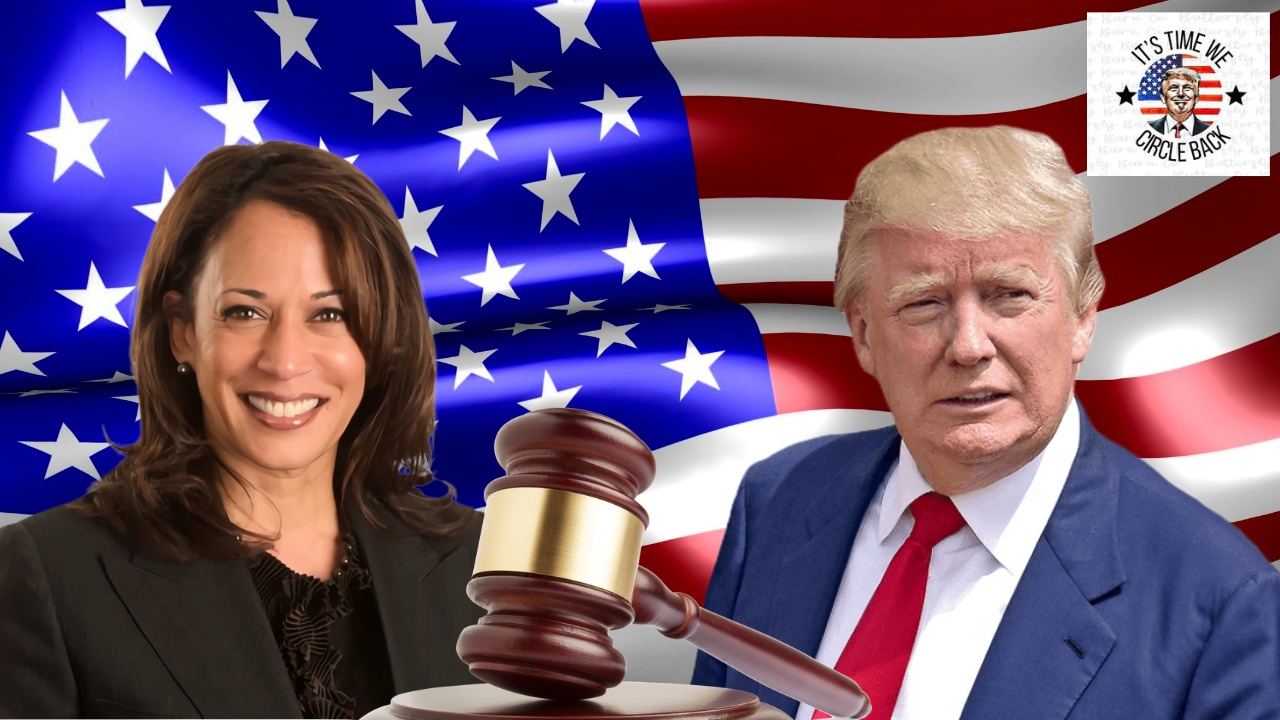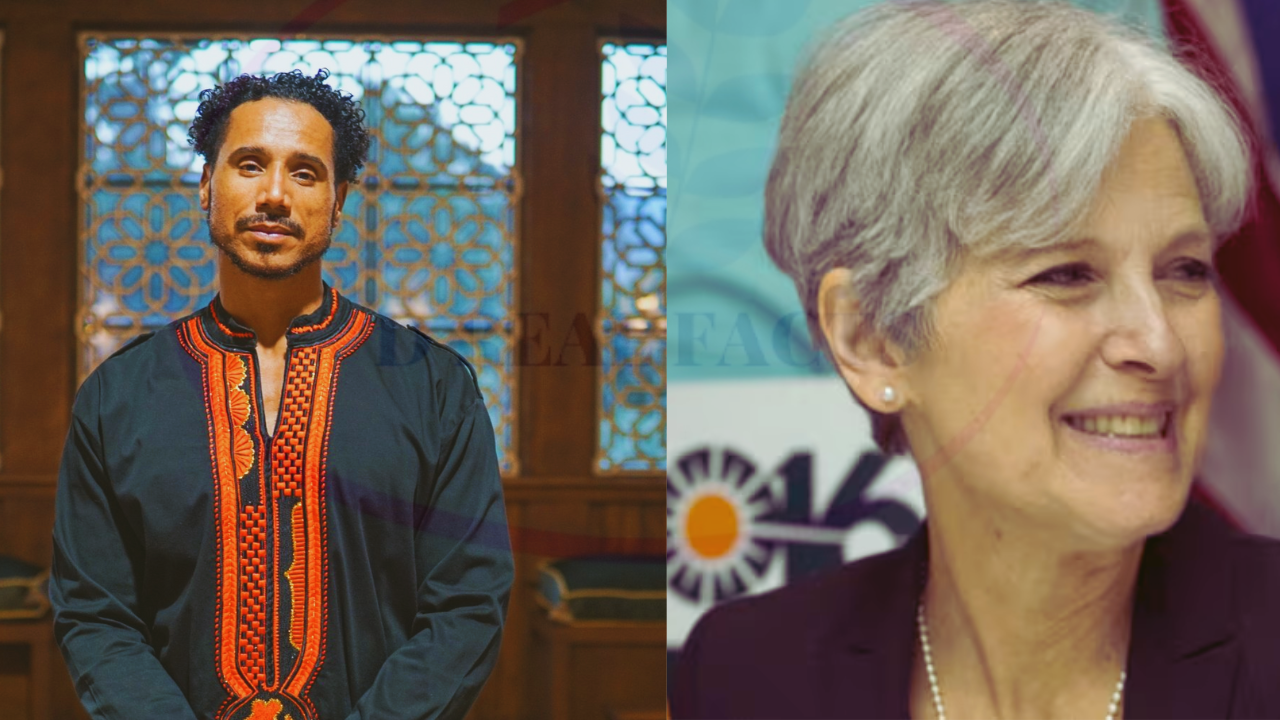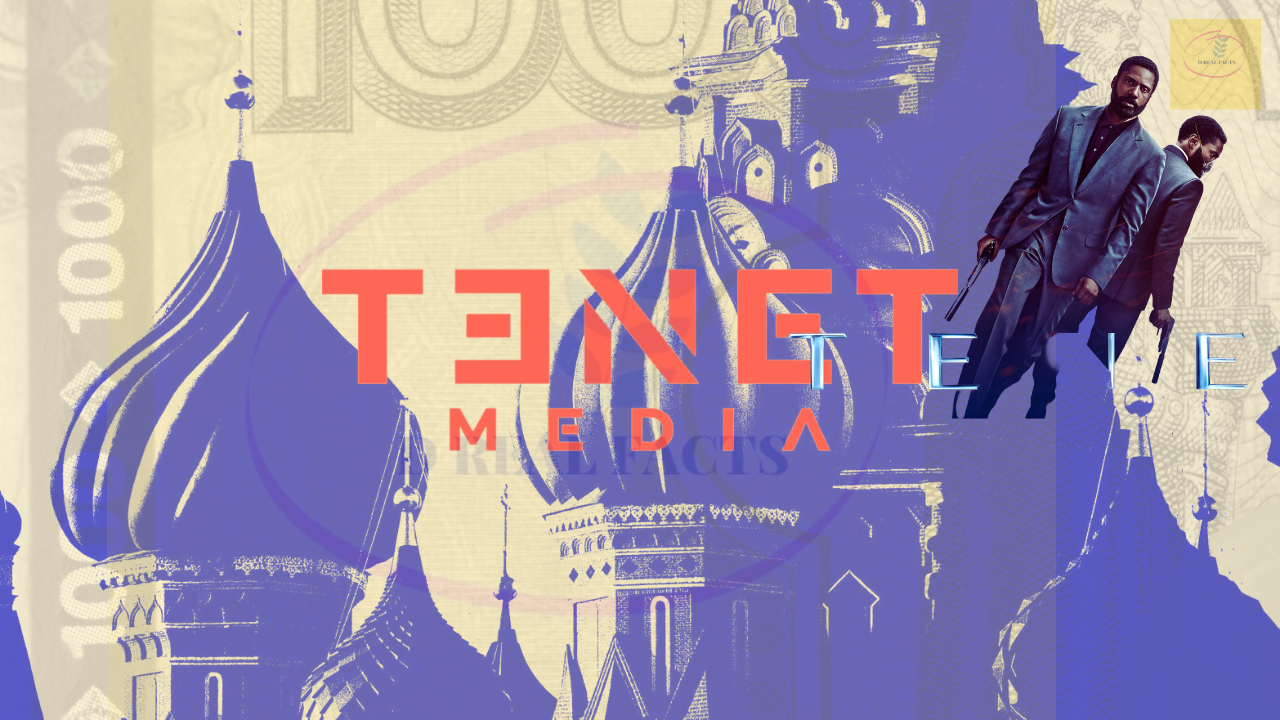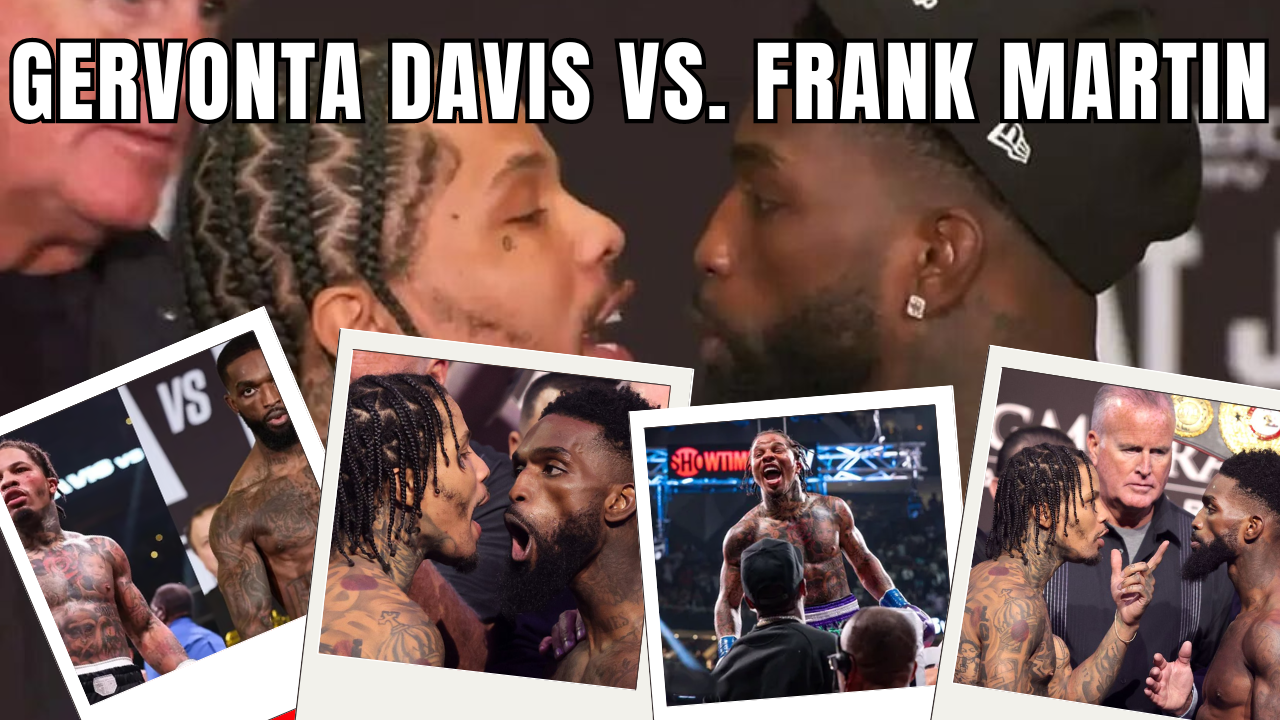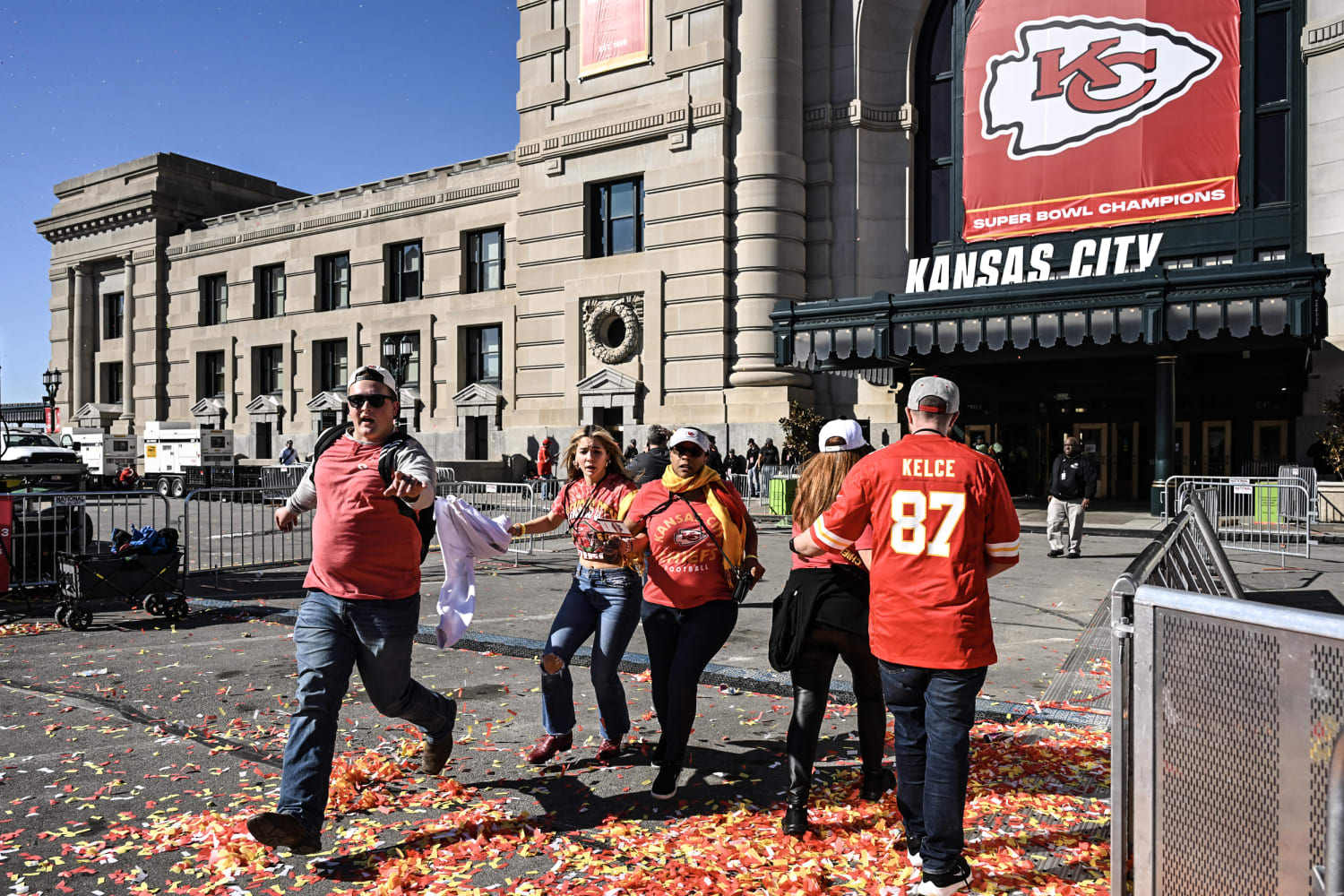

Table of Contents
KANSAS CITY, Mo. (March 14, 2024) – Three Missouri men have been charged with federal firearms violations in connection with the deadly shooting that erupted during the Kansas City Chiefs’ Super Bowl victory parade last month. The charges stem from the alleged illegal purchase of high-powered rifles and magazines used in the attack.
One person was killed, and approximately 22 others were injured in the chaotic incident that sent hundreds of parade attendees scrambling for cover. While the three individuals charged this week are not accused of directly firing shots, authorities allege they played a crucial role in supplying the firearms used in the crime.
“These charges address the illegal acquisition of firearms that ultimately ended up in the hands of individuals who intended to do harm,” said U.S. Attorney for the Western District of Missouri, [U.S. Attorney Name], in a press release. “[We are] committed to holding accountable those who contribute to gun violence in our communities.”
According to court documents unsealed on Wednesday, Fedo Antonia Manning, 22, of Kansas City, is facing the most severe charges, including conspiracy to traffic firearms, engaging in the business of selling firearms without a license, and making false statements on a federal form. The complaint alleges Manning illegally trafficked dozens of firearms, including multiple AR-15 rifles.
Ronnel Dewayne Williams Jr., 21, and Chaelyn Hendrick Groves, 19, both of Kansas City, were charged with four counts each related to the purchase of a firearm for an ineligible person. The complaint details how Williams allegedly purchased a pistol at a gun show last year for Groves, who was underage and legally unable to own a firearm himself.
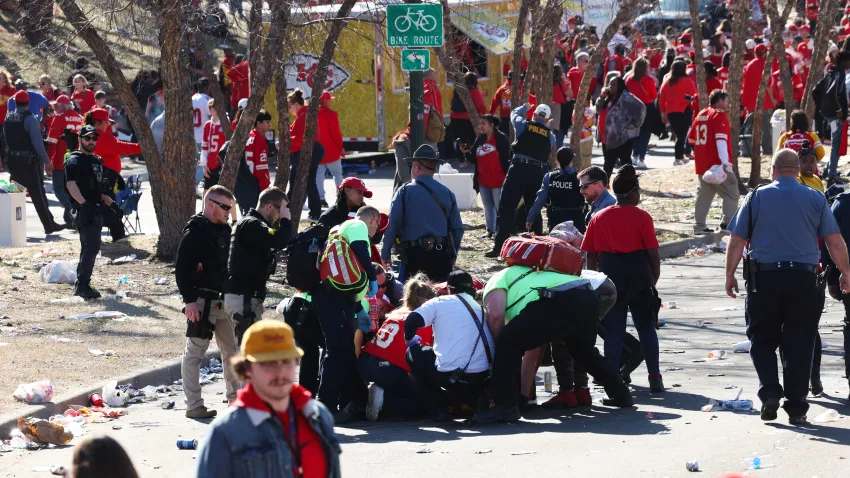
New Developments in the Super Bowl Parade Shooting Case
The case surrounding the deadly shooting at the Kansas City Chiefs’ Super Bowl victory parade continues to unfold. Here’s a summary of recent developments:
- Defense Attorneys for the Accused: The three Missouri men facing federal firearms charges – Fedo Antonia Manning, Ronnel Dewayne Williams Jr., and Chaelyn Hendrick Groves – have secured legal representation. Their defense strategies and potential arguments remain to be seen in upcoming court appearances.
- Community Response: Local Kansas City organizations are hosting forums and discussions to address the ongoing trauma caused by the shooting. These events provide a platform for open dialogue, grief counseling, and community healing.
- Calls for Gun Control Measures: The incident has reignited calls for stricter gun control measures in Missouri and on a national level. Lawmakers are facing renewed pressure to address gun violence and implement regulations that could prevent similar tragedies in the future.
- Investigation Continues: Law enforcement officials are still piecing together a complete picture of the events leading up to the shooting. This includes determining the exact flow of the firearms and the potential connection between the men charged with firearm violations and the individuals who allegedly opened fire.
Looking Ahead:
The legal proceedings against the accused will likely take time. As the investigation progresses and more information comes to light, the public will gain a clearer understanding of the motives and circumstances surrounding this tragedy. The city of Kansas City will continue its path of healing while seeking justice for the victim and those affected.
By incorporating this section, you can keep your article current and provide readers with a more comprehensive understanding of the ongoing situation.
A City in Shock: The Kansas City Super Bowl Parade Shooting Through Different Lenses
The jubilant atmosphere of the Kansas City Chiefs’ Super Bowl victory parade was shattered by a hail of gunfire in February 2024. One person lost their life, and dozens were injured in the chaos. Now, three Missouri men face federal firearms charges in connection with the tragedy. Let’s explore this event through the eyes of those directly affected.
The Victim’s Family: For Lisa Lopez-Galvan’s loved ones, the world stopped on that fateful day. Grief and anger mingle as they grapple with the senseless loss. The charges against the men who allegedly supplied the firearms offer a glimmer of accountability, but it can’t bring Lisa back. The road to healing will be long and arduous, filled with questions about what could have been.
The Survivors: The physical and emotional scars of the shooting run deep for those who were caught in the crossfire. Some might struggle with PTSD, reliving the terrifying moments in their nightmares. The once joyous celebration of a championship is now forever tainted by the trauma of the experience. Support groups and mental health resources become crucial in helping them reclaim a sense of normalcy.
The City of Kansas City: The shooting cast a dark shadow over the city’s celebratory spirit. The sense of safety and community shattered. Local businesses that thrived on the parade atmosphere now face economic hardship. The city grapples with the question of how to move forward, seeking ways to prevent such tragedies and rebuild trust.
Law Enforcement: The pressure to find answers and hold those responsible accountable falls heavily on law enforcement. Balancing the need for swift action with a thorough investigation becomes paramount. Their focus extends beyond the men facing charges, as they work to determine the complete chain of events and potential accomplices. Super Bowl
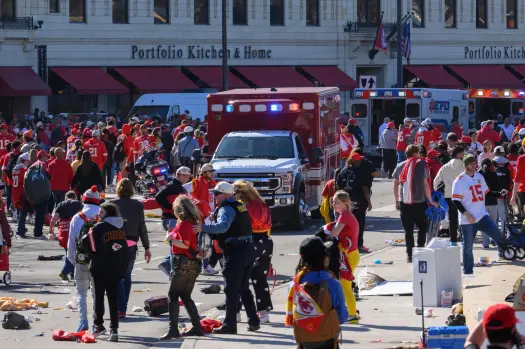
The Gun Control Debate: The incident reignites the national conversation about gun control. Proponents point to the tragedy as evidence of the dangers of readily available firearms. Calls for stricter background checks, bans on assault weapons, and limitations on high-capacity magazines gain renewed momentum. Opponents argue that such measures infringe on Second Amendment rights and blame the violence on societal issues rather than the tools themselves. Super Bowl
The Legal System: The legal battle has just begun. Defense attorneys for the accused will argue their case, challenging the evidence and potentially raising questions about the legality of the investigation. The prosecution will strive to demonstrate the men’s culpability in the tragedy, highlighting the danger of illegally obtained firearms. The outcome of the trial will hold immense significance for all parties involved. Super Bowl
This tragedy in Kansas City serves as a stark reminder of the consequences of gun violence. As the city heals and the legal process unfolds, the story serves as a cautionary tale, prompting introspection and action to prevent similar tragedies in the future. Super Bowl
A Super Bowl Parade Turns Tragic: A Tapestry of Voices
The Kansas City Super Bowl parade promised jubilation. Instead, gunfire ripped through the crowd, leaving a trail of devastation. Here’s a glimpse into the event’s aftermath, woven from the diverse perspectives of those it touched: Super Bowl
The Social Media Influencer: “Live footage went viral,” lamented Sarah, a social media influencer. “My feed turned from celebratory posts to a sea of panic and confusion. Suddenly, the city I promote felt unsafe.” The once picture-perfect image of Kansas City was tarnished, raising questions about responsible online reporting in the face of tragedy. Super Bowl
The Conspiracy Theorist: “It was a setup,” declared Earl, a man known for his distrust of authority. “They want to take away our guns! This shooting is just another excuse for gun control.” The incident fueled existing anxieties about government overreach, highlighting the challenge of navigating truth and misinformation in a digital age. Super Bowl
The Local Shopkeeper: “Business has plummeted,” sighed Maria, owner of a souvenir shop near the parade route. “People are afraid to come downtown. It’s a double loss – the lost lives and the lost income.” The tragedy’s economic impact resonated beyond the immediate victims, highlighting the ripple effect of violence on communities. Super Bowl
The Anonymous Online Forum User: “They were just kids,” sympathized an anonymous user on a gun forum. “They didn’t know their actions would lead to this.” This perspective, however unpopular, sparked discussions about responsibility, gun safety education, and the complex factors contributing to gun violence. Super Bowl
The Therapist: “The trauma is real,” Dr. Patel, a therapist working with survivors, stated gravely. “Many are struggling with fear, anxiety, and flashbacks. We need to provide long-term mental health support for those affected.” The shooting’s psychological impact underscored the importance of mental health initiatives in the wake of violence. Super Bowl
The Politician: “We need stricter gun control laws,” Senator Thompson declared, capitalizing on the public outrage. “These tragedies are happening too often. We need to act now.” The incident became a political battleground, reigniting the debate on gun control and potential solutions to curb violence. Super Bowl
The Jury Member: “We’ll hear all sides,” stated a potential juror, selected for the trial of the accused men. “My decision will be based solely on the evidence presented. It’s a heavy responsibility.” This emphasized the role of the justice system in delivering a fair verdict based on facts, not emotions. Super Bowl
The tragedy in Kansas City is a multifaceted story, each perspective revealing a piece of the puzzle. As the city tries to heal, the diverse voices serve as a powerful reminder of the human cost of gun violence and the ongoing need for dialogue, action, and a commitment to a safer future. Super Bowl
Echoes of Gunfire: A Ballad of Loss and Justice
The festive roar of the Kansas City Super Bowl parade crowd morphed into a chilling symphony of gunfire. A lone voice, Lisa Lopez-Galvan’s, was silenced forever, replaced by the deafening silence of grief. Three men now stand accused, their actions echoing through the city like a haunting melody. Super Bowl
The Broken String: A Father’s Lament
John, Lisa’s father, strums his guitar, the once joyous instrument now echoing his heartbreak. Each note is a tear, each chord a memory. He sings of a daughter lost, a future stolen, and a justice system that feels like a broken record, repeating the same tired song of punishment without prevention.
The Discordant Note: A Friend’s Confusion
Sarah, Lisa’s best friend, wrestles with a dissonant mix of emotions. Anger towards the accused men clashes with a yearning to understand their motives. Social media amplifies the discord, a cacophony of conspiracy theories and political agendas drowning out the melody of truth.
The Off-Key Voice: The Accused Man’s Plea
Frowning behind a bulletproof glass barrier, Fedo, one of the accused, mutters a defense that feels off-key. His lawyer plays a discordant counterpoint, weaving a legal tapestry that seeks to exonerate him while the weight of potential victims’ suffering hangs heavy in the air.
The Haunting Melody: A Community’s Trauma
Across Kansas City, a mournful melody of trauma reverberates. The once vibrant parade route now echoes with the ghosts of fear and anxiety. Therapists become the conductors, trying to orchestrate healing for survivors, their gentle guidance a counterpoint to the city’s collective grief.
The Hopeful Crescendo: A Call for Change
Politicians take center stage, their voices rising in a crescendo of promises and proposed solutions. Stricter gun control measures clash with arguments for individual liberty, creating a complex harmony of competing interests.
The Unfinished Symphony: A Quest for Answers
The investigation continues, each new discovery a note added to the unfinished symphony of the case. The search for the truth is a relentless pursuit, the final resolution elusive, yet essential for a sense of closure.
The Kansas City Super Bowl parade shooting is a tragic symphony with no clear ending. Each character plays a part, their voices weaving a story of loss, anger, confusion, and the desperate hope for justice and change. The final note, the one that brings peace and healing, remains elusive, a song yet to be sung.
Show drafts
volume_up

The Ripple Effect: A Kansas City Tragedy’s Impact Beyond the Headlines
The Kansas City Super Bowl parade shooting transcended the realm of breaking news. It sent shockwaves through the community, leaving a trail of devastation that extended far beyond the immediate victims and the accused. Here’s a look at the ripple effect of this tragedy:
The Economic Downturn: Beyond the emotional toll, the shooting triggered an economic downturn in Kansas City’s downtown area. Fearful crowds stayed away from previously bustling streets, impacting restaurants, shops, and hotels that relied on the parade’s usual economic boom. Local businesses, already struggling in a post-pandemic world, faced additional hardship.
The Tarnished Image: Kansas City, known for its vibrant culture and friendly atmosphere, saw its carefully cultivated image take a hit. Tourists, wary of potential violence, reconsidered travel plans. Events scheduled for the city center faced cancellations or dwindling attendance, further impacting the local economy.
The Heightened Security Concerns: Public safety became a paramount concern in the aftermath of the shooting. Law enforcement agencies re-evaluated security protocols for large gatherings, implementing stricter measures and increasing police presence. This shift in focus, while necessary, also raised concerns about a potential militarization of public events.
The Grassroots Movement: The tragedy sparked a grassroots movement within the community. Local organizations rallied together to offer support to victims’ families, survivors, and businesses struggling financially. Mental health support groups became a vital resource, providing a space for healing and processing trauma.
The Educational Push: The shooting reignited conversations about gun safety education, particularly amongst younger generations. Parents and educators explored ways to introduce responsible gun ownership practices and the dangers of firearms in a way that resonated with young minds.
The Renewed Political Debate: The incident became a focal point in the national gun control debate. Proponents used it as a stark example of the dangers of readily available firearms, pushing for stricter regulations and background checks. Opponents argued that the focus should be on addressing mental health issues and the root causes of violence.
The Unanswered Questions: Despite the ongoing investigation and upcoming trials, several questions remained unanswered. The full extent of the accused men’s involvement, their motivations, and the possible presence of additional accomplices continued to be a source of speculation and unease for the community.
The Kansas City Super Bowl parade shooting serves as a stark reminder of the far-reaching consequences of gun violence. It’s a story not just about the immediate tragedy but also about the long-term social, economic, and psychological impact it leaves on a community. The journey towards healing and preventing similar occurrences in the future demands a multifaceted approach – addressing the root causes of violence, fostering open dialogue, and implementing effective safety measures.
The Unsung Heroes: Everyday Acts of Kindness in the Face of Tragedy
Lost amidst the headlines and legal proceedings surrounding the Kansas City Super Bowl parade shooting lie stories of resilience and compassion. Ordinary people stepped up in extraordinary ways, offering solace and hope in the darkest of times.
- The Paramedic with a Guitar: John, an off-duty paramedic witnessing the chaos, used his medical expertise to assist the injured. But his act of kindness extended further. He later serenaded survivors at the hospital with his guitar, his music a balm for their trauma.
- The Restaurant Owner’s Open Door: Maria, owner of a local diner, noticed a drop in customers after the shooting. But instead of succumbing to economic fears, she kept her doors open, offering free meals to anyone affected by the tragedy – victims’ families, survivors, and even law enforcement personnel working long shifts.
- The Anonymous Online Support Group: An anonymous online forum dedicated to survivors of gun violence sprang to life after the shooting. Here, individuals shared their experiences, fears, and coping mechanisms, finding solace in a virtual community built on shared trauma and the understanding that they weren’t alone.
- The Children’s Art Therapy Program: A local art therapist organized workshops for children who witnessed the shooting. Through paints, crayons, and clay, these children expressed their emotions, finding a safe outlet to process their trauma and begin their journey towards healing.
These are just a few examples of the countless acts of kindness that emerged from the ashes of tragedy. They serve as a powerful reminder that even in the face of darkness, humanity’s capacity for compassion and love can shine through.
